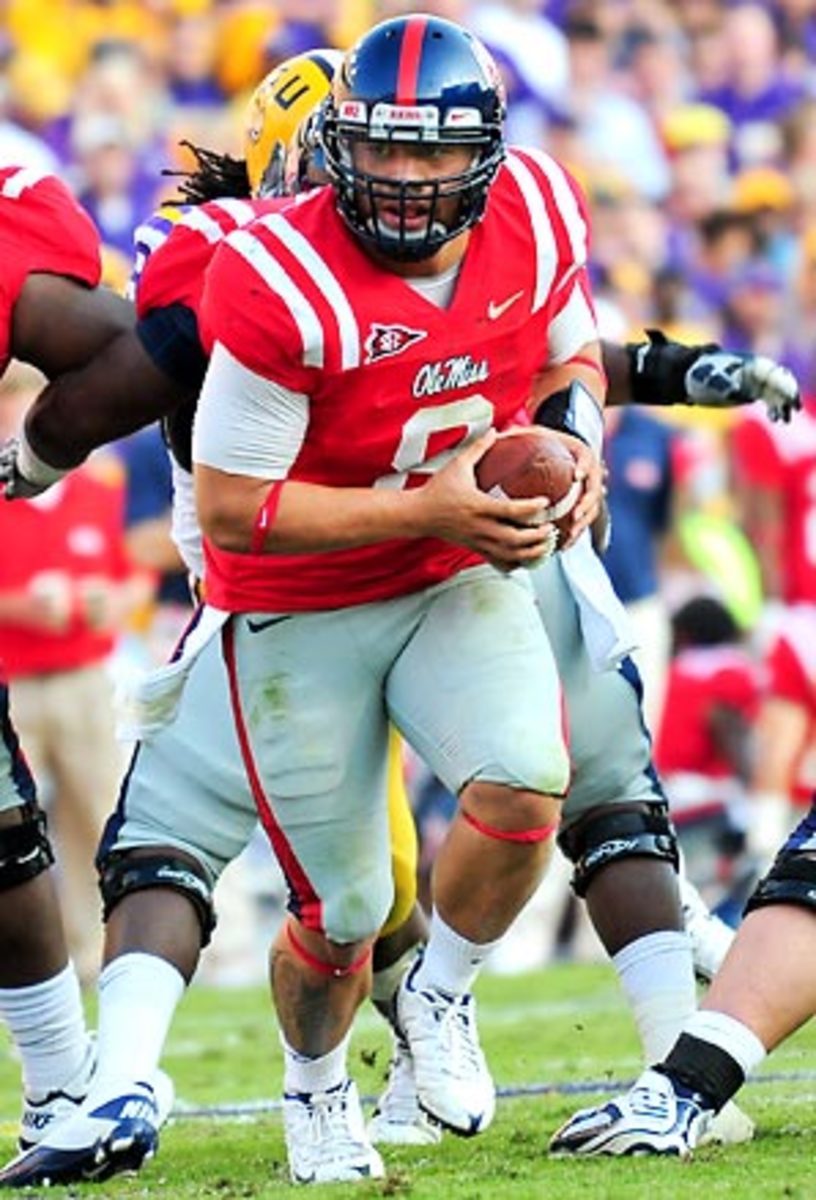
SEC's shameful grad-exception ban overshadows oversigning victory
"It's a good day to be in the SEC," Adams said. "Everybody did the right thing."
Except for the part where they did the wrong thing.
Yes, the SEC clamped down on oversigning in football. The league imposed a 25-signee limit between Dec. 1 and Aug. 1 and tightened down loopholes that should eliminate 11th-hour scholarship yanking and reduce to almost zero the incentive for coaches to cut older scholarship players to make room for newer models. The new SEC rules aren't as strict as the Big Ten's long-standing hard cap of 85 players on scholarship at a given time, but they're the next best thing. Even better, they'll be palatable enough to the rest of the FBS conferences that they'll likely be adopted nationwide.
So this column should celebrate the league for striking a blow to protect the 18-year-old kids instead of enabling the millionaire coaches. It won't, though, because the league's presidents decided to abolish the one rule on the books that actually rewards athletes for embracing the student part of "student-athlete." As Slive proudly ran down the list of roster management tweaks -- the 25-signee cap, the conference office's mandate to review each request for a medical scholarship exemption, a ban on schools signing early enrollees to a financial aid document before enrollment -- there may as well have been an audible record scratch when he announced the league had rescinded the graduate-student exception that allows players who have earned degrees to transfer into a league school and play their final year of eligibility immediately.
The SEC will push for the rest of the nation to adopt its oversigning rules. Thankfully, the SEC will not push its ban on the grad-student exception to the rest of the country. Hopefully, the SEC will remain the only league dumb enough to wipe from the books the only rule in the NCAA that actually provides a positive incentive for athletes.
The rule, which allowed former Utah cornerback Ryan Smith to play immediately at Florida in 2006 and former Oregon quarterback Jeremiah Masoli to play immediately at Ole Miss in 2010, gives athletes a reason to vigorously pursue their bachelor's degrees. Coaches can come and go as they please without penalties, but athletes are bound by transfer rules that force them to sit out a year if they change their minds. The exception allowed a player who had applied himself in the classroom and earned a degree to be rewarded with one year of free agency if he chose. In a league that split $234 million between its 12 schools on Friday, was one little concession to the help upon whose backs all that money is made so much to ask?
Apparently, it was.
"We're not interested in athletes coming for the purpose of one year and then moving on," Slive said.
Really? You aren't? Someone should have told that to Gerald Wallace, John Wall, Eric Bledsoe, DeMarcus Cousins, Daniel Orton, Brandon Knight and Tobias Harris, who all recently spent one year playing basketball at Alabama, Kentucky and Tennessee before moving on. The SEC didn't pass a rule Friday to keep those types of athletes from enrolling at SEC schools, because doing so would have put the league at a competitive disadvantage.
This rule, which affects only a handful of athletes a year, hasn't given anyone that great of a competitive advantage. Florida probably would have won the SEC and national titles in 2006 without Smith -- who was a backup on the Utah depth chart -- and Ole Miss still stunk with Masoli at quarterback. Maybe linebacker Brandon Maye (a grandfathered-in Clemson-to-Mississippi State transfer for the 2011 season) or Russell Wilson (former NC State quarterback and current pro baseball player who is considering Auburn and Wisconsin) will tip competitive balance in a meaningful way, but those players could go to any school, so it's not as if everyone didn't have a chance.
Certainly, Masoli took advantage of the rule, which was designed to allow athletes with eligibility to keep playing if they had to transfer to another school to enroll in a graduate program not available at their original school. He earned a sociology degree at Oregon before he was booted from the Ducks for a litany of transgressions. He enrolled in the Parks and Recreation graduate program at Ole Miss, where he presumably was disappointed that he didn't get to meet Ron Swanson and his mustache. Certainly the circumstances of Masoli's departure from Oregon were shameful. But should the embarrassment over one case outweigh the positives of a rule that -- egads -- actually provides an incentive for players to graduate?
"It's an old rule," Slive said. "And it's always been grounded in the concept that we are interested in having our transfers come in on the basis that they can be here for two years, get grounded, get an education and have an incentive to get an education. Clearly, we've learned the exception does not provide the incentive we want our kids to have."
Slive's incentive argument rings false. The exception may not have resulted in a Parks and Rec master's for Masoli, but it provided excellent incentive for athletes to earn an undergraduate degree. Those degrees, by the way, make them more educated than 71 percent of the U.S. population.
What Slive and the SEC presidents fail to understand is that by repealing the exception, they further reinforced the popular notion that the leadership of big-time college athletics doesn't give a rip about education as long as the money keeps flowing. What's amazing is that they reinforced that notion on a day when they actually made meaningful process for the students they serve.
They should have quit while they were ahead.




